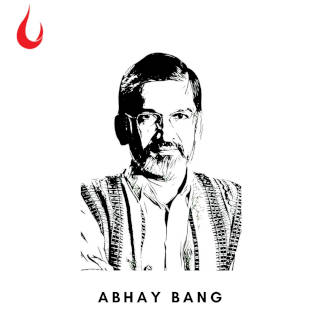[Photo by Nick Fewings on Unsplash]
Good morning,
A narrative we hear often is how overworked and burnt out people are feeling. Does this have to do with our current work ethic and the misery all around exacerbates it? Our conversations suggest that may indeed be the case. For pointers on how to work around it, we looked up Manage Your Day-to-Day: Build Your Routine, Find Your Focus, and Sharpen Your Creative Mind, a collection of essays published by 99U. Some pointers from Mark McGuinness, a London-based leadership coach got our attention.
- The single most important change you can make in your working habits is to switch to creative work first, reactive work second. This means blocking off a large chunk of time every day for creative work on your own priorities, with the phone and e-mail off.
- It wasn’t easy, and it still isn’t, particularly when I get phone messages beginning “I sent you an e-mail two hours ago…!” By definition, this approach goes against the grain of others’ expectations and the pressures they put on you. It takes willpower to switch off the world, even for an hour. It feels uncomfortable, and sometimes people get upset. But it’s better to disappoint a few people over small things, than to surrender your dreams for an empty inbox. Otherwise you’re sacrificing your potential for the illusion of professionalism.
- Certain times of day are especially conducive to focused creativity, thanks to circadian rhythms of arousal and mental alertness. Notice when you seem to have the most energy during the day, and dedicate those valuable periods to your most important creative work. Never book a meeting during this time if you can help it. And don’t waste any of it on administrative work!
- Limit your daily to-do list. A 3” × 3” Post-it is perfect—if you can’t fit everything on a list that size, how will you do it all in one day? If you keep adding to your to-do list during the day, you will never finish—and your motivation will plummet. Most things can wait till tomorrow. So let them.
- Set a start time and a finish time for your workday—even if you work alone. Dedicate different times of day to different activities: creative work, meetings, correspondence, administrative work, and so on. These hard edges keep tasks from taking longer than they need to and encroaching on your other important work. They also help you avoid workaholism, which is far less productive than it looks.
Stay safe and have a good day!
In this issue
- Not all drugs work; don’t panic
- What is the shape of the new society we will build?
- Song: Antarjami Purakh Bidhate
Not all drugs work; don’t panic
That there is a public health crisis in India is now obvious. And because the healthcare system has practically collapsed, social media is flooded with requests for drugs such as Remdesivir and fervent pleas to donate plasma. That is why we thought Govindraj Ethiraj’s conversation on IndiaSpend.com with Dr Gunjan Chanchalani in Mumbai and Dr Saumit Ray in New Delhi most interesting.

Dr Ray, who heads critical care at Holy Family Hospital in New Delhi, tells Ethiraj that “Remdesivir is [for] only those who require very low amounts of oxygen—2 to 4 litres maximum. There was an interesting article that said ‘Remdesivir—a drug in search of a disease’, because it failed against ebola, it failed against MERS, it failed against SARS. But unfortunately, even we are sometimes pushed to prescribe it because the pressure is so high. And if the patient is not doing well, the pressure is even more in spite of explaining to families, so we end up having to do it. Some families accept [medical advice] and some families say, give it to my loved one [who] is very sick, please give it. And medicine, unfortunately, doesn't work like that but we are almost forced to do it.”
“The only thing that I can say to all patients is that, please don't panic when you're detected positive, follow your doctor, monitor yourself, monitor your own oxygen, monitor your oxygen on exertion which is a six-minute walk test. And only when the oxygen drops, report to your doctor and get admitted or take oral medications which are required. Panic is the worst thing [in the situation]. Have faith in your doctor—that is the most important thing. People are using all these over-the-counter medicines or comparing [their medication] with others because they are panicking,” urges Dr Chanchalani.
Dig deeper
- We are pressured to prescribe drugs that don’t work (IndiaSpend)
What is the shape of the new society we will build?
Last April, Arun Maira, in his essay, What is the shape of the new economy we will build?, reminded us that “the future does not have to be an extrapolation of the past. Let’s make time for conversations about ideals, aspirations, and innovations.”
IDR has a fascinating conversation between Nachiket Mor, an expert in health systems design, and Dr Abhay Bang, a public health expert. They discuss India’s Covid strategy, and in the process give us a sense of what systems will be ideal for the country.

“Civil society in India is as if it doesn’t exist”
In this excerpt, Dr Bang underscores the importance of a participatory model of governance.
He says, “Now, imagine if we had involved the 300,000 gram panchayats that we have today, and their local leaders, in implementing the behaviour change and the lockdown measures like distancing, etc., and also self-help groups (SHGs), and also civil society. Civil society is practically nowhere in this management of Corona. Civil society in India is as if it doesn’t exist, you take orders only from a few experts; the collector gives you orders, he tells you that from today onwards, we are taking over your hospital.
“Now he’s following the order which he’s getting from above. This is a very authoritarian model of trying to control Corona, which is currently the problem of 140 crore people. Let them [140 crore people] know what they are expected to do, I am sure they will not do it 100 percent but then communities evolve their own norms.
“So they will need some help, but the local governance model should be a participatory model, not an authoritarian one. That would work much better. Look, if it was a problem of…only 15 days, maybe you can follow a war-like emergency model. But when you say, ‘learn to live with Corona but I will give you orders on how to live’, that doesn’t work.”
Dig deeper
Still curious?
- CEOs and entrepreneurial founders are rolling up their sleeves to save their businesses and also save livelihoods so that the economy doesn't sink further, writes Arun Maira. Read: What is the shape of the new economy we will build?
- Healthcare in India urgently needs locally appropriate but systemically consistent solutions. There’s much to learn from how other countries and sectors have gone about it, writes Nachiket Mor. Read: A way for India to provide universal healthcare
- Some think all things must be quantified and managed. Others think of it as ridiculous. But the truth has nuances, writes Charles Assisi. Read: The measured, routine life
Song for the day: Antarjami Purakh Bidate
I stumbled across this on a playlist and it stayed with me since. Though I did not initially get all of what the words meant, I did not want it to end either. Over time, I wrapped my head around it and it is now a regular on my playlist—at times in the morning, at others in the night. Some looking up later, I figured it is from the Guru Granth Sahib. I haven’t looked it up beyond that. There is some innocence in the discovery and my interpretation of it. I want it to stay that way.
~ Charles Assisi
What’s helping you get through these tough times? Send us the song, poem, quote that is your balm now. And we will share it through this newsletter.
And if you missed previous editions of this newsletter, they’re all archived here.
Bookmark Founding Fuel’s special section on Thriving in Volatile Times. All our stories on how individuals and businesses are responding to the pandemic until now are posted there.
Warm regards,
Team Founding Fuel
(Note: Founding Fuel may earn commissions for purchases made through the Amazon affiliate links in this article.)


